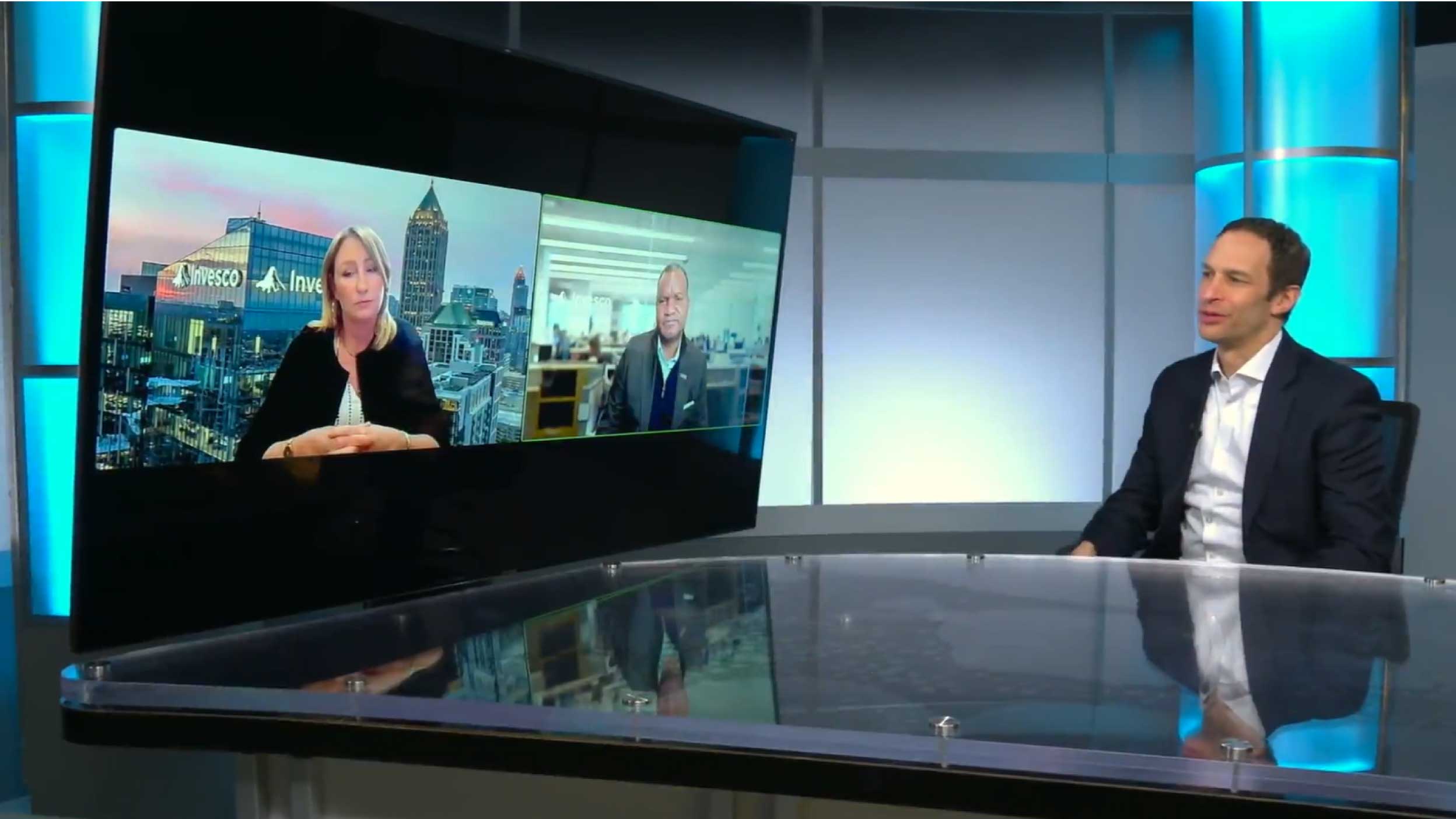
The four Trump policies most likely to impact economic growth
Deregulation and tax cuts could potentially provide a boost to US economic and market growth, while tariffs and immigration restrictions could pose challenges.

The US-China relationship. Biden has improved dialogue with China, though he’s also taken aim at TikTok, while Trump is more protectionist.
Market implications. Biden and Trump both presided over very similar market advances during their terms as president.
Geopolitics and central banks. The Russia-Ukraine and Israel-Hamas wars are unlikely to change path of central banks or global economy.
It looks like Election Day will be Groundhog Day, as the US is heading toward a rematch between former President Donald Trump and current President Joe Biden. But four years later, how similar will the rematch be?
A lot has happened geopolitically in the world since then. The Russia-Ukraine and Israel-Hamas wars linger on. In Asia, dialog around relations — both economic and military — are improving between China and the US.
We examine these issues in the first of our three-part webinar series hosted by Andy Blocker, Global Head of Public Policy & Strategic Partnerships, and featuring Jennifer Flitton, Head of US Government Affairs, and Brian Levitt, Global Market Strategist. Our experts cover the policies, the politics and the results.
Take a look at some of our key takeaways from the event, and tune into the replay for the full story.
Brian Levitt: It’s not necessarily specific policies that meaningfully impact the economy. Rather, periods of uncertainty or lack of clarity can stall decision-making. Consider 2018, for example. Most people don't remember 2018 as a year in which the US flirted with recession, but there was a lot of uncertainty around trade policy that actually led business investment in the US to slow significantly. By the time the Trump administration provided greater clarity on what the tariffs would be, the market had a much better time dealing with it, so 2019 was actually a great year for markets. But it’s uncertainty that can cause problems.
Brian Levitt: The markets have usually done well across most administrations — Republican and Democratic. The only time that markets have done poorly is if the president had bad timing. So, the only time you've had negative returns — which were, quite frankly, slightly negative returns — over the course of an administration was George W. Bush. His term ended in the global financial crisis. Then there was Richard Nixon, who didn't finish his second term, but it ended during the 1973-1974 recession. Every other president has presided over seen good returns. In fact, Biden and Trump presided over very similar market advances in their terms.
Brian Levitt: It's interesting when you look at clean energy versus traditional energy, the returns are very different under Trump and Biden than what you would expect. When Trump won in 2016, I think most believed traditional energy would do well. It did not. Some of that was due to COVID-19, some of that was due to oversupply — but clean energy outperformed meaningfully. Paradoxically, when Biden won, the exact opposite happened.
Brian Levitt: The Federal Reserve has a dual mandate of price stability and full employment. They take it very seriously. They are not trying to get presidents elected. In the mid-nineties, Alan Greenspan lowered rates, and that wasn't to help Bill Clinton get re-elected as Greenspan was a known conservative.
Jennifer Flitton: Let's first start with President Biden. What we've seen transpire over the last year for the most part is that he has tried to bring relations with China back to normal. Channels of communication between the U.S. Defence, Treasury, State and Commerce Departments have opened up with their Chinese counterparts.
But Biden has recently taken aim at Chinese investment in high-tech sectors here in the US. There have been concerns on an economic and national security level about infrastructure in the US and Chinese military surveillance. The US House of Representatives recently passed a bill that could ban TikTok in the US as long as it’s owned by a Chinese company.
Now, with regard to Trump, his language around China is very strong. We would expect him to take a more protectionist, isolationist stance to geopolitics.
Jennifer Flitton: This is similar to promises Trump made in 2016. What we really saw was the policy focusing in on certain sectors such as steel. If he wins, what he will likely be able to do is not only expand on what his administration previously did (because the Biden administration hasn't repealed those measures) but go further and home in on China. It's a much broader agenda he has here.
Brian Levitt: I would generally look past that. One thing to focus on is the strength of the US dollar. We've been looking forward to a period where the Federal Reserve can ease monetary policy — which tends to result in a moderation of the dollar versus the nation’s largest trading partners — and capital can start to flow to other parts of the world. The challenge would be if there’s a more hawkish trade policy or uncertainty around policy that brings money back to the dollar.
Jennifer Flitton: There has been broad bipartisan support for Israel, but there is a growing concern among Democratic base voters with how this war is transpiring and specifically the humanitarian concerns. We’re also watching if Congress can pass additional aid to Ukraine, which is going to be monumental in whether or not Ukraine will be in a good position to negotiate with Russia.
Brian Levitt: When we boil it down, I always come back to two main questions, when events like these happen, at least from an investment perspective. Firstly, does it meaningfully change the direction of the global economy, in particular the United States?
Secondly, does it change what the central bankers are going to do? And right now, given where we are with sort of a stalemate between Russia and Ukraine and where we are with Israel and Hamas, so long as they don't become wider confrontations, I feel pretty comfortable answering those two questions as no.
Jennifer Flitton: I think Trump 2.0 is going to be very much like Trump 1.0, and that's going to be a return to a more confrontational posture. If you look at the first term of Trump and his budget request towards Latin America and the Caribbean, a lot of funding was pulled back.
You can watch the replay of our webinar on-demand and sign up for our next webinar on what political strategist think about the 2024 US presidential race.

Deregulation and tax cuts could potentially provide a boost to US economic and market growth, while tariffs and immigration restrictions could pose challenges.

The potential for significant deregulation and tax cuts has excited many investors, leading US stocks to “climb the wall of worry” despite immigration and tariff risks.

Explore how Europe is preparing for Trump's return to the White House. With trade frictions, security concerns, climate change, and relations with China at the forefront of concerns, the EU faces challenges in maintaining unity and negotiating effectively.


Sign up to receive the latest insights from Invesco’s global team of experts and details about on demand and upcoming online events.
The value of investments and any income will fluctuate (this may partly be the result of exchange-rate fluctuations) and investors may not get back the full amount invested.
This marketing communication is for discussion purposes only and is exclusively for use by professional investors in Continental Europe as defined below, and Professional Clients in Ireland, Isle of Man, Jersey, Guernsey and the UK. It is for use for professional investors in Dubai. It is not intended for and should not be distributed to, or relied upon, by the public.
For the purposes of this email Continental Europe is defined as Austria, Belgium, UK, France, Finland, Germany, Ireland, Luxembourg, Norway, Portugal, Denmark, Germany, Italy, Liechtenstein, the Netherlands, Spain, Switzerland and Sweden.
This is marketing material and not financial advice. It is not intended as a recommendation to buy or sell any particular asset class, security or strategy. Regulatory requirements that require impartiality of investment/investment strategy recommendations are therefore not applicable nor are any prohibitions to trade before publication.
By accepting this email you consent to communicate with us in English, unless you inform us otherwise.
Views and opinions are based on current market conditions and are subject to change.
Issued by:
Invesco Management S.A., President Building, 37A Avenue JF Kennedy, L-1855 Luxembourg, regulated by the Commission de Surveillance du Secteur Financier, Luxembourg.
Invesco Asset Management Limited, Index Tower Level 6 - Unit 616, P.O. Box 506599, Al Mustaqbal Street, DIFC, Dubai, United Arab Emirates. Regulated by the Dubai Financial Services Authority.
Invesco Asset Management Deutschland GmbH, An der Welle 5, 60322 Frankfurt am Main, Germany.
Invesco Asset Management Limited, Perpetual Park, Perpetual Park Drive, Henley-on-Thames, Oxfordshire, RG9 1HH, United Kingdom. Authorised and regulated by the Financial Conduct Authority.
Invesco Asset Management (Schweiz) AG, Talacker 34, 8001 Zurich, Switzerland.
EMEA3456549